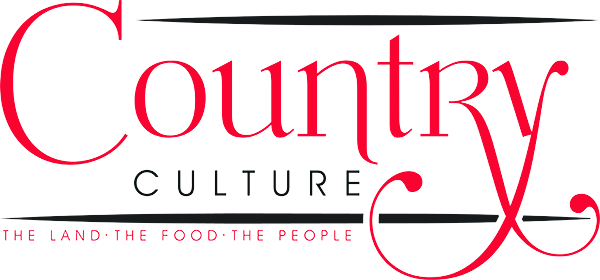Nestled in bucolic Wattsburg, PA, just a short drive from the shores of Lake Erie, stands a modest but enduring symbol of agricultural legacy – Truesdail Farm.
For over 70 years, the farm has been more than a source of livelihood; it’s been a way of life for the Truesdail family, rooted in tradition, resilience and the quiet determination that defines much of rural America.
Merle Truesdail, now in his early 80s, is the steward of this land. His voice, calm but clear, reflects both the weight of his years and the grounded steadiness of someone who knows his business.
“My dad started this place in 1953,” Merle said. “It was a different world back then… smaller tractors, no computers. But the work ethic was the same.”
Merle took the reins from his father three decades ago. Since then, he has not only maintained the farm but ensured that it remains a family endeavor. Today, he works the land and cares for the cattle with the help of two of his sons, Brian and Aaron, continuing the tradition into its third generation.
At its height, Truesdail Farm was home to about 60 brood cows, forming a bustling herd that kept Merle and his family busy year-round. But like many small-scale farms facing the pressures of modern agriculture, the herd has since been downsized. Now numbering 34, the cows still represent the heart of the operation.
“There’s a lot of reasons we slimmed down,” Merle explained. “Feed costs, time, labor – and honestly, I’m not as young as I used to be. This smaller herd is manageable, and it fits better with the way we need to do things now in terms of grazing.”
Despite its reduced size, the herd continues to be the farm’s primary source of income. This year, Merle plans to sell 24 of his cows for what he calls “freezer beef,” a local initiative that connects farmers directly with consumers. In November, 12 cows each will be sent to two area slaughterhouses, processed and then distributed to families across the region looking for high-quality, locally raised beef.
“Customers can buy a quarter, a half or the whole darn cow,” Merle said. “We get about four dollars a pound. It’s not a fortune, but it helps keep us going. I get a little bit of Social Security, but that’s not much. This is how we make it work.”
This past winter, Truesdail Farm weathered a season that brought Merle and his sons face to face with the kind of harsh conditions that once defined Erie County winters. “It was like the winters we used to have back in the ‘70s,” he recalled. “Snow piled up to three feet in places. It was rough.”
The cold temperatures and deep snow forced an unusual adjustment for the Truesdails: calving indoors. While calving typically occurs outside in designated paddocks or barns with more space, this year’s conditions required flexibility.
“With the weather the way it was, we just couldn’t risk having the calves out there,” Merle said. “Too cold, too dangerous. We brought them inside, found space where we could. It was tight, but we made it work.”
The smaller herd turned out to be a blessing in disguise. “If we’d had 60 head like we used to, we wouldn’t have had the room,” he added. “It would’ve been chaos. But with 34, we managed.”
It’s a moment that captures the practical ingenuity of the family. The Truesdails, like many farmers, are used to adapting – to weather, to economic shifts, to changing demands.
Despite the challenges, Merle remains upbeat about the farm’s future. What keeps him going isn’t just the land or the cows, but the people beside him every day.
“I live and work with three generations of my family here on the farm,” he said. “That’s a good thing. Not many people can say that anymore.”
According to Merle, “The younger ones respect the way we do things, but they’re smart enough to know when something needs to change. It’s a balance… give and take.”
There’s also a next generation quietly growing up around the farm: Merle’s grandchildren. While it’s too early to say whether they’ll take up the mantle one day, they’re learning the ropes.
“It’s in their blood, whether they’d like to admit it or not,” Merle chuckled.
Small family farms like Truesdails’ have become increasingly rare. The pressure from large-scale agribusinesses, rising land prices and the general shift away from rural life have made it hard for operations like this to survive, let alone thrive. But Merle doesn’t dwell on those statistics.
“Sure, it’s not easy. But what is? I’ve been here a long time, and I plan to be here a while longer,” he said. “I don’t plan on stopping … just maybe slowing down a bit.”
That blend of realism and resolve defines Merle’s approach to life and farming. He knows the landscape is changing – both literally and figuratively – but he also knows the value of staying grounded.
“You don’t have to be big to be good,” he said. “You have to be good to be good.”
As spring melted the snowdrifts and coaxed new grass into the pastures, life at Truesdail Farm took on its seasonal rhythm. There were fences to mend, calves to check, hay to plan. The work never really stops and that’s just how Merle likes it.
“There’s satisfaction in seeing something through. We take our herd from calf to cow and from the pasture to our dinner table,” he reflected. “You raise something right, treat it well and you feed a family with it. That’s the way it’s always worked for us.”
Truesdail Farm may not be flashy or large. But it is enduring, honest and deeply woven into the fabric of its community. In an era where speed and scale often dominate the conversation around food, Merle and his family offer a powerful reminder: sometimes, slow and steady – and small – is exactly what we need.
“It’s not about getting rich. It’s about living right. And I think we’re doing just fine.”




